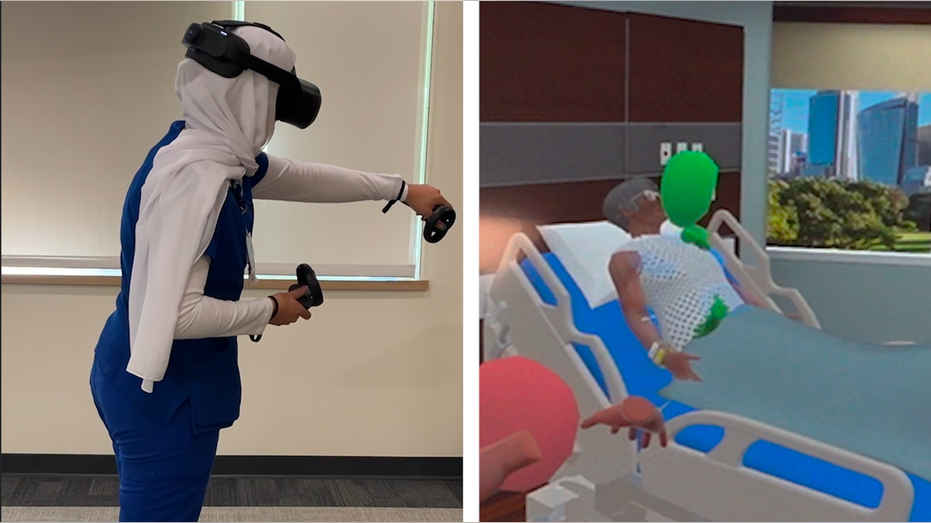For the more than 15 million U.S. adults who are currently taking Ozempic or another GLP-1 drug for diabetes or weight loss, Thanksgiving may look a little different than it did prior to starting the medication.
GLP-1 (glucagon-like peptide-1) medications reduce appetite by sending signals of fullness to the brain and slowing down emptying of the stomach.
Common side effects include nausea, constipation and reflux.
OZEMPIC PUSH FOR SENIORS? SOME DOCTORS SAY MORE PEOPLE AGE 65 AND OVER SHOULD BE ON IT
“The rate at which the stomach is purged of food (and acid) is slowed significantly, almost to the point of backup,” Dr. Brett Osborn, a Florida neurologist and longevity expert, told Fox News Digital.
“Essentially, they are ‘injectable fullness’ – and sometimes to a fault.”
Osborn often prescribes GLP-1s to his patients as an effective way to treat obesity and type 2 diabetes, but he acknowledged that the digestive side effects, recommending paying some extra attention to the size and macronutrient content of meals.
“Navigating Thanksgiving while on GLP-1 medications can be a bit different, but with some planning and strategies, you can enjoy the holiday without compromising your health goals,” Dr. Britta Reierson, a family physician and medical director at knownwell in Minneapolis, Minnesota, told Fox News Digital.
The doctors offered the following tips for the upcoming holiday.
“If your appetite is reduced due to GLP-1 medications like Ozempic, focus on smaller portions of nutrient-dense foods,” Osborn advised.
“Prioritize lean protein, non-starchy vegetables and fiber-rich sides to meet your nutritional needs without overloading your digestive system.”
Reierson agreed that lean protein and veggies should be the main components of the meal. “Turkey, roasted vegetables and salads are great options,” she said.
It’s wise to limit high-fat, sugary foods, Reierson added.
DIABETES AND WEIGHT LOSS DRUGS SHOWN TO REDUCE ALCOHOL-RELATED HOSPITALIZATIONS, STUDY FINDS
“You can still enjoy these foods in moderation, but keep the portion sizes small to minimize any gastrointestinal discomfort,” she said.
“Also avoid fried foods, as they can be harder to digest and may cause or worsen nausea.”
Osborn recommends incorporating healthier versions of traditional foods whenever possible.
“For example, choose roasted vegetables instead of buttery casseroles or opt for turkey breast without gravy to reduce unnecessary fat,” he suggested.
“Remember, fat slows gastric emptying – it’s why you feel full when you eat a fatty meal.”
When taking GLP-1 medications, gastric emptying is already slowed, Osborn noted, which means too much fat in one sitting will cause nausea and potential vomiting.
The experts recommend doling out smaller portions of your favorite dishes.
“You can enjoy traditional Thanksgiving dishes, but in much smaller quantities,” Osborn said. “Focus on a few bites of high-calorie dishes rather than full servings.”
Reierson agreed, adding, “You can still enjoy all the variety and bounty of the meal without overeating.”
Overindulging while on GLP-1 medications can lead to nausea or discomfort, Osborn warned.
“Listen to your body, and don’t feel pressured to eat a whole plate if you’re not hungry,” he said. “It’s okay to take small bites, chew slowly and savor the flavors.”
As these medications will help you feel full sooner, it’s important to pay close attention to your body’s signals, he noted.
“Remember, there is a delay between eating and one’s perception of satiety,” Osborn said. “And this can hit you like a tidal wave if you’re not careful.”
“Stop eating as soon as you feel satisfied, not stuffed.”
If you can’t clear your plate in one sitting, simply pack it up and take it home.
“You can enjoy your favorite holiday dishes over several days, so there is no need to overeat during the meal,” Reierson noted.
Hydration is important for everyone, but particularly those on GLP-1 medications.
“GLP-1 medications can slow gastric emptying, and dehydration can worsen side effects,” Siegel cautioned.
“Drink water throughout the day and shortly after your meals.”
“Avoid the temptation to skip meals earlier in the day to ‘save up’ for the big meal,” Reierson advised.
“This will often backfire and can lead to overeating and discomfort.”
If someone comments on your small portion size, Osborn recommends keeping it “simple and polite.”
“You could say, ‘I’m not as hungry today, but everything looks amazing,’ or ‘I’m focusing on smaller portions, as big meals make me feel lousy,’” he suggested.
You shouldn’t feel obligated to explain your medication unless you’re comfortable doing so, the doctor added.
CLICK HERE TO SIGN UP FOR OUR HEALTH NEWSLETTER
“So many people are on GLP-1 agonists nowadays, anyway, that it has become more widely accepted,” he noted.
Don’t be afraid to communicate openly, Reierson advised.
“Explain that you are on a medication that affects your appetite,” she said.
“If you are not comfortable sharing, it may work well to simply deflect with positivity that you are focusing on healthier eating habits or you aren’t very hungry.”
For more Health articles, visit www.foxnews.com/health
Overall, Reierson echoed, the important thing is to keep it simple.
“With a bit of mindfulness, you can enjoy Thanksgiving without the side effects.”




